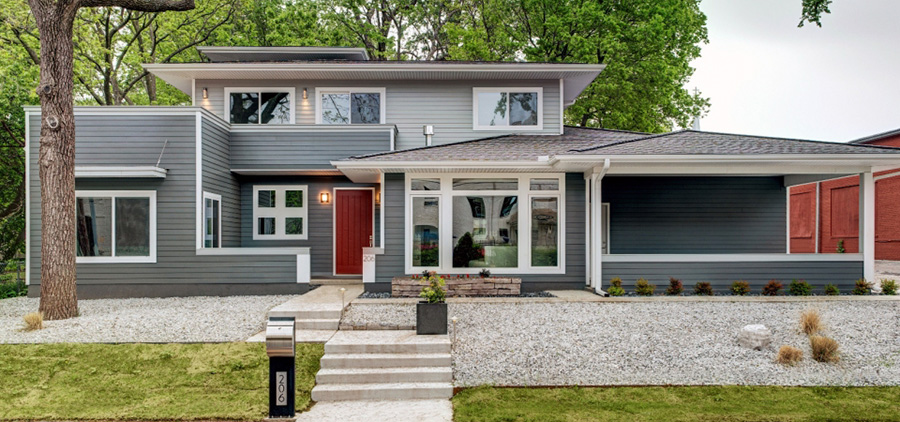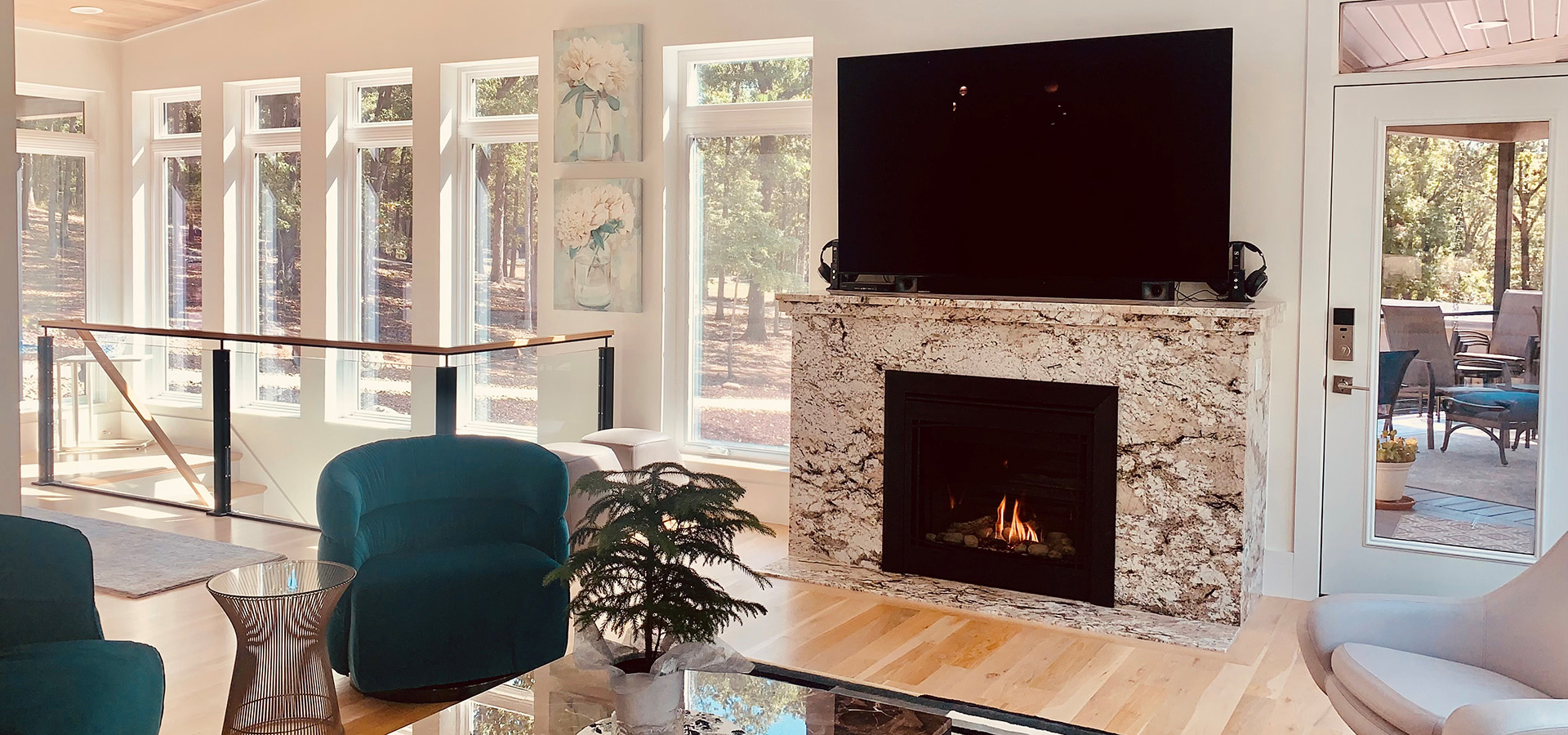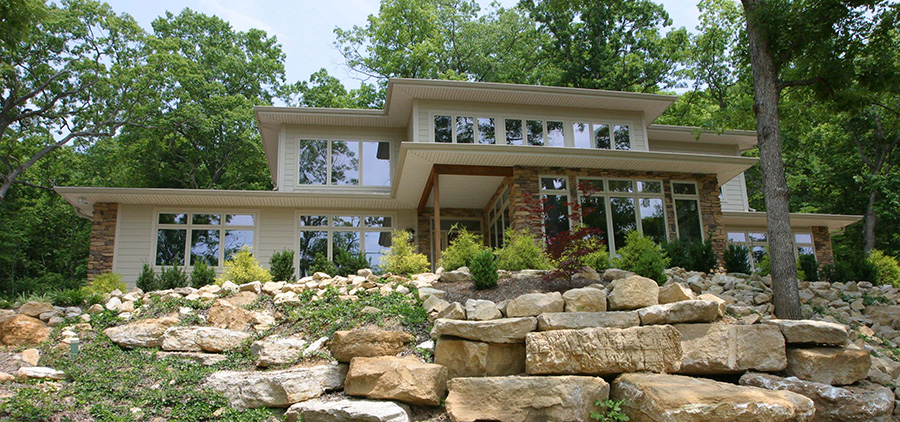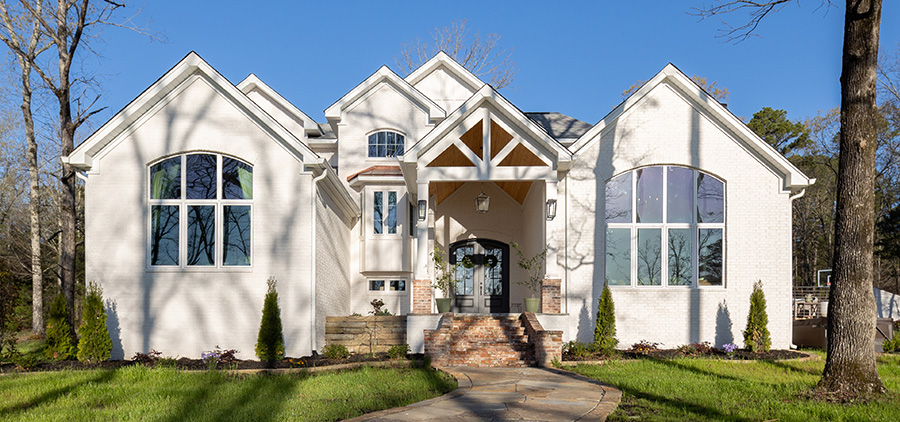
Both framed and ICF walls are options for an energy-efficient, storm-resilient custom home. Framed walls are the most common, and they’re a safe and affordable option when built to high performance standards. If your home needs to withstand high winds, ground tremors, or similar stresses, though, ICFs are a better choice.




Have you ever seen a house in the framing stage? If you push together all the wood that makes up the outside walls, it’ll equal about a quarter of all the space framed by those walls. That’s a lot of wood that’s NOT insulated. That means you’re losing energy through thermal bridging! Insulated wall sheathing, like Zip-R, or any other product that insulates your wood framing solves that problem and makes your energy envelope more efficient.
Tornadoes, hurricanes and even straight line winds can push your home off its foundation or tear off its roof unless you build for storm safety. The framed walls of a Stitt home are anchored to the foundation with bolts, and the roof trusses are bound to the walls with metal straps, ties and hangers. Yes, framed walls are a safe and affordable option, but they need continuous insulation and engineered connectors to make them energy efficient and storm resilient.

ICF walls eliminate thermal bridging and the need for insulated wall sheathing because they’re encased in insulation. They’re relatively easy to install, hold up to high winds and are impact and rot resistant. If you like peace and quiet, you’ll appreciate how they reduce outdoor noise. Plus, if you like wide window sills for pets or plants – ICFs give you sills nearly 11-inches wide! ICF walls may cost more than frame walls, but you may determine the added benefits are worth it.

